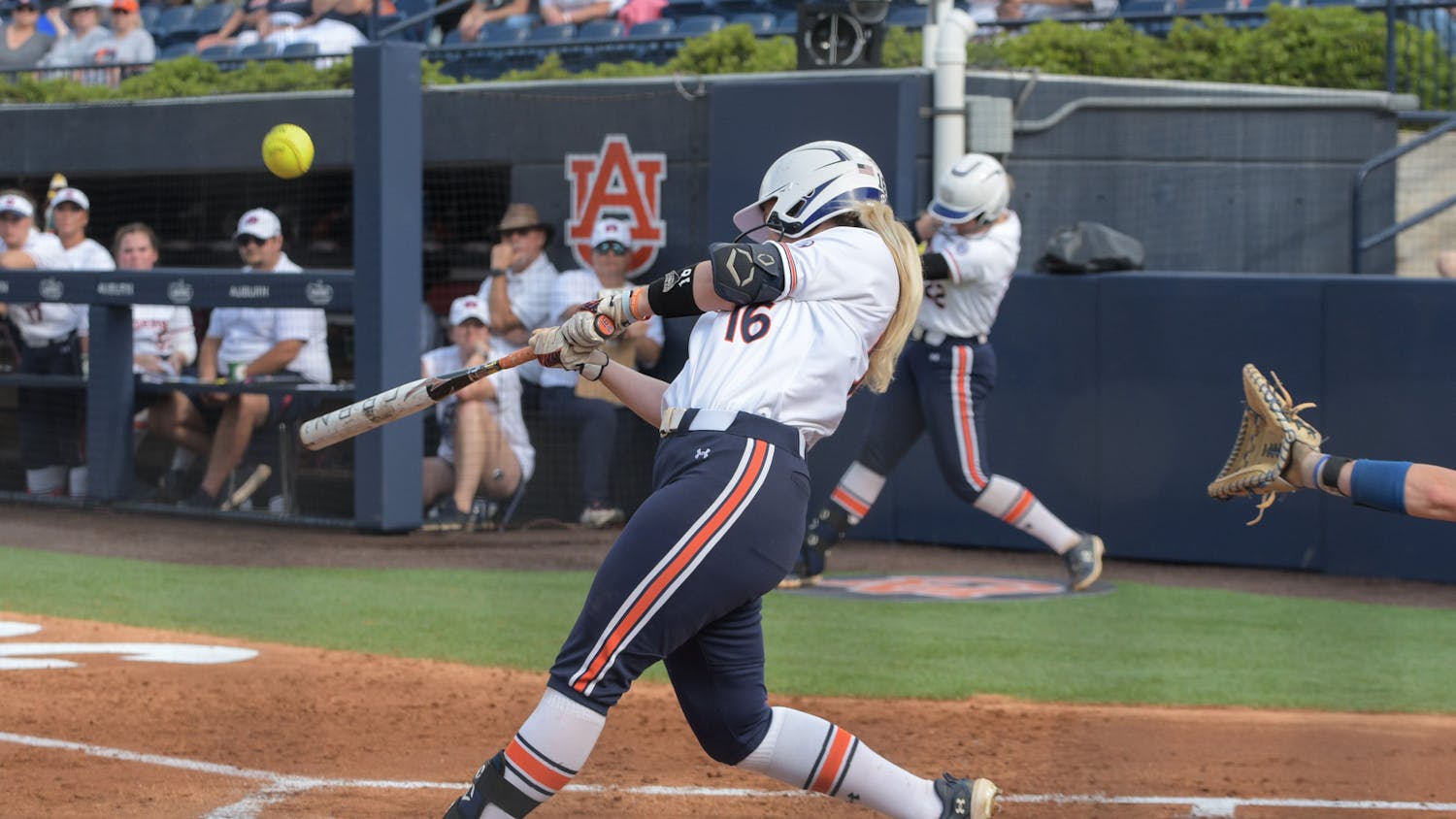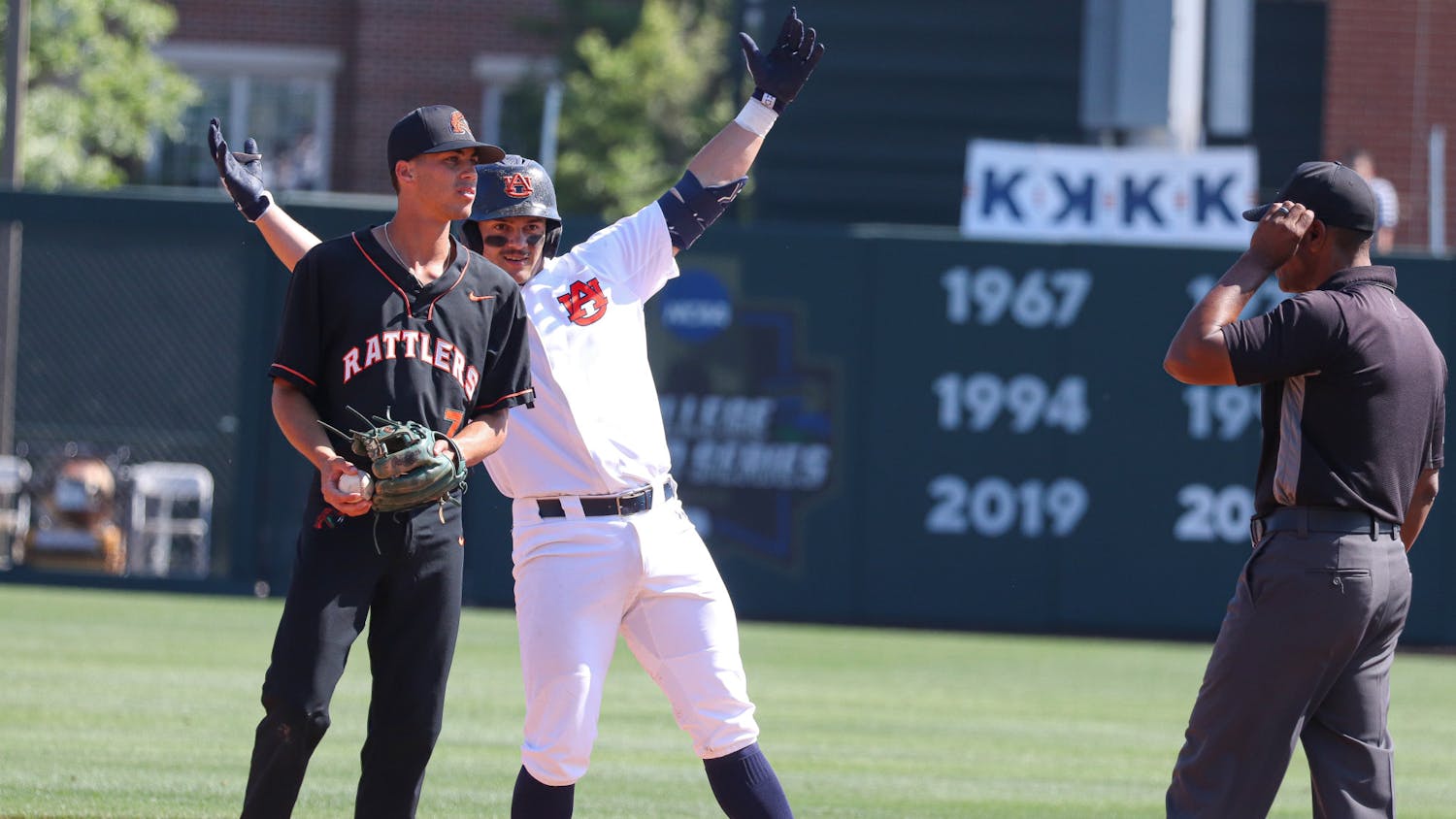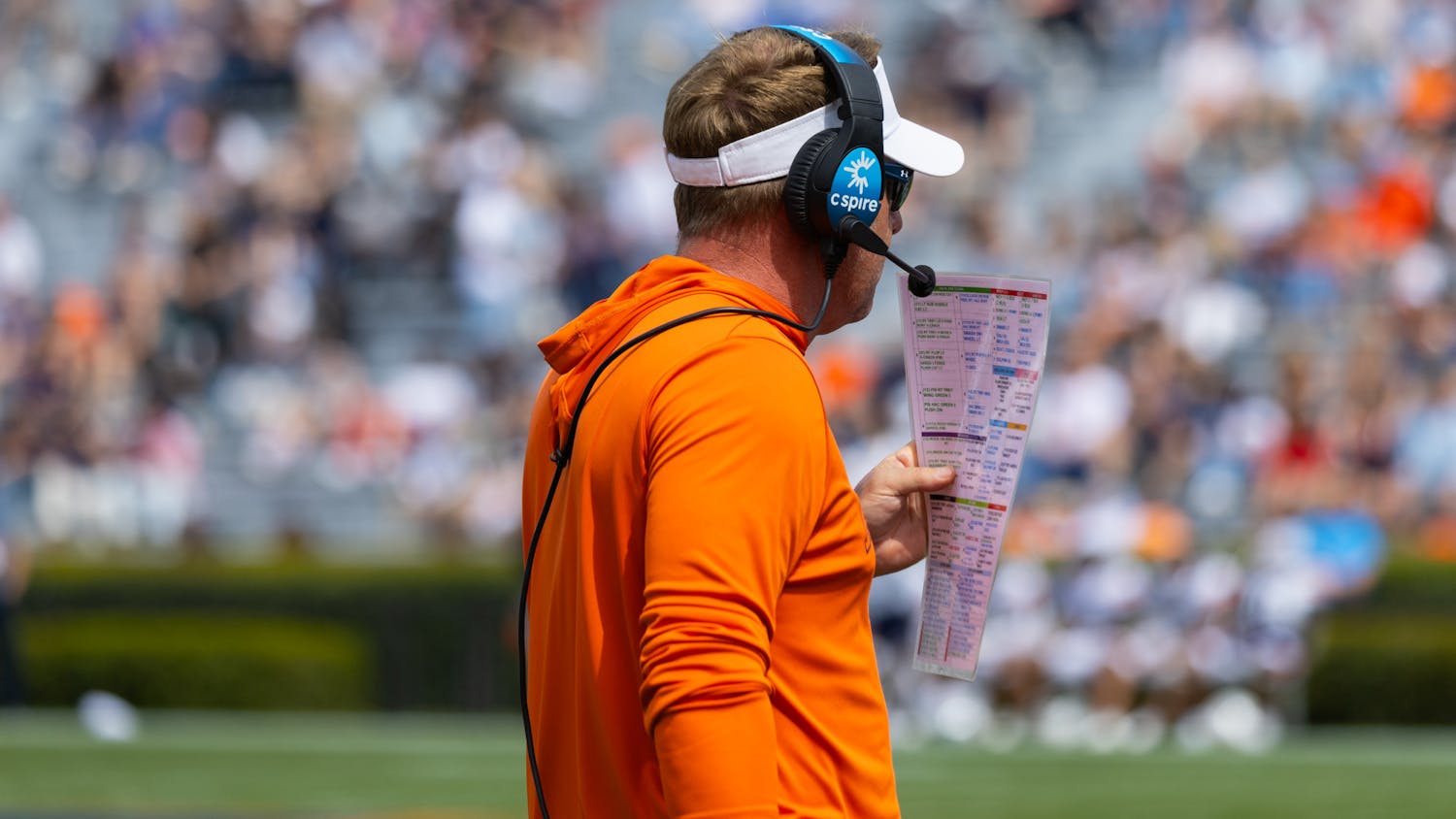Updated at 5:00 p.m. to include the beginning of Hubbard's testimony.
Alabama House Speaker Mike Hubbard took the stand Tuesday afternoon as the first witness for his defense in his felony ethics trial. Defense attorney David McKnight called the indicted Auburn Republican to begin the defense's case.
During his testimony, Hubbard told the jury how he founded his Auburn-based media consulting firm Auburn Network Inc. and how he and other partners later bought Craftmaster Printers.
Hubbard is now accused of using his office as Alabama Republican Party Chair and Alabama House Speaker to direct investments and business to Craftmaster to keep the company afloat. When he bought the company, it owed more than $8 million in debt.
"We basically bought [Craftmaster Printers] for a dollar, assumed the debt and went into business," Hubbard said. "It was a horrible investment … but the company is still operating and still employing 40 people, and I'm proud of that."
Hubbard said the Alabama Republican Party chose Craftmasters not to benefit him, but because it was cheaper for the party. His firm could do the printing of the party's direct mailers for cheaper and more directly than others.
"We learned [other mail vendors] marked up the printing," Hubbard said. "It was an excellent deal for us because we could afford to do more mail. We saved 30–40 percent off the top. … We didn't have the time for on-the-job training. We were going to run the campaigns for them."
Hubbard and Senate President pro Tempore Del Marsh led a historic takeover of the Alabama House and Senate. Their efforts overturned the Legislature from Democratic control for the first time in 136 years.
"We knew they could do it," Hubbard said about Craftmaster. "We knew they could take a more profitable job off the press and put a political one on. We knew that we could control that if we used Craftmaster."
Hubbard said he never forced anyone to ever use Craftmaster, he never received "a cent" from the company, and he declined commissions for the sales.
"We knew from experience that it worked on the [Bob] Riley campaign," Hubbard said. "It was a group decision that we use Craftmaster. It was all private money, and it was all people who understood that was what we were going to do."
He also testified about his first run for the Alabama House of Representatives. Hubbard said Auburn Network produced his media advertisements, but his company also produced his opponents' advertisements
Hubbard said he sold the multimedia portion of the Auburn Network and the Auburn athletic media rights to International Sports Properties. ISP later sold the rights to IMG Sports. ISP maintained Hubbard as the president of the Auburn division, but IMG later terminated him.
"I was assured that nothing was going to change [when ISP sold to IMG]," Hubbard said. "I was told that they had gotten on the phone with the new owners (IMG Sports), and they said nothing was going to change."
He did not take a salary from Auburn Network, he took it from ISP instead. When he was terminated from IMG, the loss of income is what prosecutors say led Hubbard to solicit help from lobbyists and principals, which led to his indictment.
"It concerned me obviously, but I started looking at different things I could do," Hubbard said. "I was going to have to start taking a salary from Auburn Network … that's when I started taking advice from other people … like [Bob] Riley. … I had to find some way to generate more business."
Hubbard said he even contacted the Alabama Ethics Commission about his business, its private customers and how it related to his office as speaker. He said he wanted to ensure that there is was no illegality or conflicts of interest in his actions.
"I wanted to get some guidance from the Ethics Commission on exactly what to look out for," Hubbard said. "I was a frequent visitor and caller to the Ethics Commission. … I would call on numerous occasions and go see him … just to make sure things were clear. I didn't want to break any laws."
McKnight questioned Hubbard about a more specific letter he sent to the commission about his contract with the Southeast Alabama Gas District. The contract was for consulting and economic development.
"I said before I do this I want to make sure everything is [legal]," Hubbard said. "[The commission] said 'we don't see a problem with this, there are other contracts like this.'"
The commission sent Hubbard a formal letter outlining that they saw no issues with the contract between Hubbard and SEAGD. The commission said they only issue they foresaw was if Hubbard voted on a bill affecting SEAGD.
The prosecution does not allege Hubbard voted on any bills related to SEAGD. Instead, they say he lobbied the governor and the Department of Commerce for economic development agreements that benefited SEAGD.
Hubbard says he worked for plans, including recruiting CommercialJet to move to Dothan, Alabama, because the state needed the jobs. Dothan lost several job-providers during that time including a Sony Plant and a Pemco plant, which left the area after 50 years.
"[Economic Development] was the purpose of my job," Hubbard said.

"Not a shred of evidence"
Following the conclusion of three days of testimony from former Alabama Gov. Bob Riley and a short questioning of a special agent from the attorney general's office, the state's prosecution rested its case Tuesday morning.
The defense immediately moved to dismiss all of the charges against Hubbard. According to the defense, the state has not met their burden of proof. Lee County Circuit Judge Jacob Walker denied the defense's motion after lunch on Tuesday.
McKnight said the evidence was not clear, Hubbard didn't obtain personal gain from the charges, and some of the charges are duplicates. According to McKnight, the Alabama Republican Party was using Craftmaster Printers long before Hubbard became chairman, and Hubbard lost money from the deals.
Hubbard owns an interest in the Auburn-based printing company.
"There's not a shred of evidence from the state that Hubbard directed the [Alabama Republican Party] to use Craftmasters [when he was chairman]," McKnight said. "We have no evidence of any money going into Hubbard's pocket."
Hubbard is also accused of improperly lobbying the governor and the state Department of Commerce on behalf of the Southeast Alabama Gas District. SEAGD was paying Hubbard between $5,000–$12,000 for a consulting contract with his Auburn-based media firm Auburn Network Inc.
McKnight said that Hubbard had the contract "blessed" by the Alabama Ethics Commission through an informal opinion from the commission. The prosecution says Hubbard ignored that opinion.
"Having the contract isn't, per se, against the law, it's what you do with the contract," said Circuit Judge Jacob Walker. Walker is still considering the motion filed by the defense to dismiss the charges.
The prosecutions says Hubbard violated the law and his contract by lobbying and working for SEAGD within the state's borders.
$30,000 a month
Special Agent Gregory Fee, a licensed accountant and 29-year veteran of the FBI, testified that Hubbard's Auburn Network received upwards of $30,000 a month on average from 2012–2014 from consulting contracts he had with SEAGD, the American Pharmacy Cooperative Inc., Edgenuity Inc. and CV Holdings LLC.
The defense says Hubbard did not pocket any of the money from Auburn Network, but he is the sole owner. According to Fee, Hubbard received more than $100,000 in interest payments and dividends from the company in 2011 and 2012.
The Rileys
Riley was on the stand for more than 10 hours over the past three days of the trial after being subpoenaed by the prosecution. Riley's testimony was both reluctant and combative at times.
"Mike is probably as smart as anyone I have ever worked with in any position. … Mike Also has a work ethic that is absolutely phenomenal. I'm talking about 12 or 18 hours a day. Whatever it takes to accomplish a task," Riley said.
Hubbard is accused of soliciting and accepting things of value from Riley, a registered lobbyist. Alabama ethics law mandates public officials cannot solicit things of value from lobbyists or those who employ them.
Shortly after concluding his two terms as Alabama governor, Riley began his own political and strategic consulting firm Riley & Associates. Riley's daughter Minda Campbell also testified last week.
How do you define friend?
The defense is relying on an exemption in the state ethics laws that designates anything given from a friend under circumstances that shows it was given from a place because of the friendship is not considered a thing of value.
But the question of how do you define a friend has never been answered.
The exemption also says the friendships should have began before the defendant was elected to office. McKnight also argued to Walker the charges should be dismissed because the ethics code deems anything for which the recipient received full compensation is also not considered a thing of value.
Riley says he and Hubbard became friends before either were elected to serve in any public office. Hubbard even named his youngest son "Riley" after the former governor.
"I love you like a father and admire you as a son admires his father as well," Hubbard said in one email.
Riley testified Hubbard did everything he could to stay within the bounds of the ethics law, the ethics laws both Riley and Hubbard pushed to pass after Republicans took over the Legislature in 2010.
"There is no question about it, I have never seen anyone put as much effort into making sure that everything he did had been blessed — had been reviewed [by the Alabama Ethics Commission]," Riley said.
Riley called a special session of the Legislature to pass the ethics laws in the last months of his term in December 2010. The special session was Hubbard's first time overseeing the House.
Hubbard is now indicted on 23 felony counts of violating the same ethics laws he and Riley passed that year. A conviction on any one of the 23 counts could result in 2–20 years in a state penitentiary or up to a $30,000 fine.
Riley returned to the stand Tuesday afternoon for a hearing outside of view from the jury. Hubbard will return to the stand, and the defense will continue their case at 1:15 p.m. on Wednesday.
Do you like this story? The Plainsman doesn't accept money from tuition or student fees, and we don't charge a subscription fee. But you can donate to support The Plainsman.



